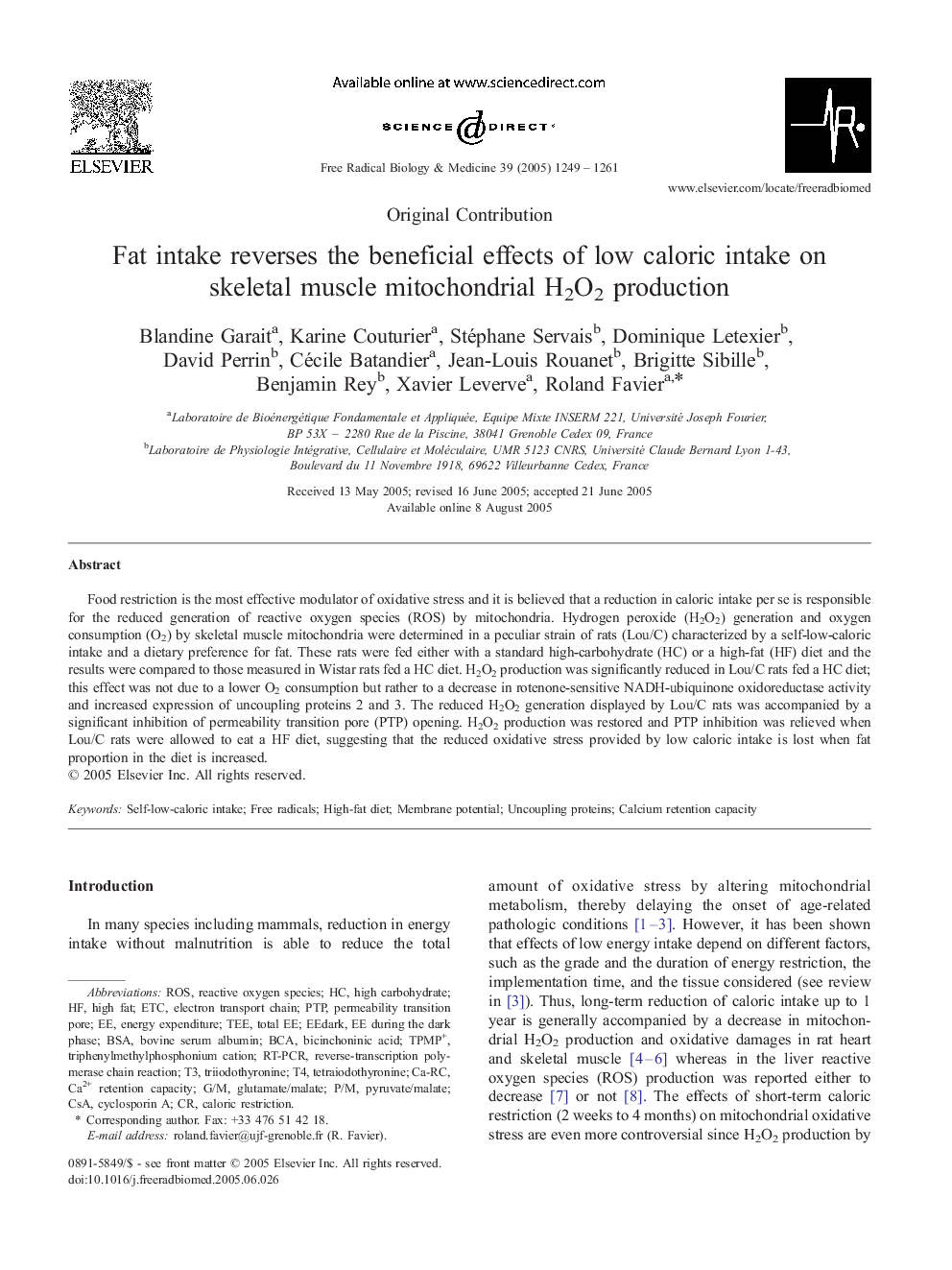| Article ID | Journal | Published Year | Pages | File Type |
|---|---|---|---|---|
| 10738913 | Free Radical Biology and Medicine | 2005 | 13 Pages |
Abstract
Food restriction is the most effective modulator of oxidative stress and it is believed that a reduction in caloric intake per se is responsible for the reduced generation of reactive oxygen species (ROS) by mitochondria. Hydrogen peroxide (H2O2) generation and oxygen consumption (O2) by skeletal muscle mitochondria were determined in a peculiar strain of rats (Lou/C) characterized by a self-low-caloric intake and a dietary preference for fat. These rats were fed either with a standard high-carbohydrate (HC) or a high-fat (HF) diet and the results were compared to those measured in Wistar rats fed a HC diet. H2O2 production was significantly reduced in Lou/C rats fed a HC diet; this effect was not due to a lower O2 consumption but rather to a decrease in rotenone-sensitive NADH-ubiquinone oxidoreductase activity and increased expression of uncoupling proteins 2 and 3. The reduced H2O2 generation displayed by Lou/C rats was accompanied by a significant inhibition of permeability transition pore (PTP) opening. H2O2 production was restored and PTP inhibition was relieved when Lou/C rats were allowed to eat a HF diet, suggesting that the reduced oxidative stress provided by low caloric intake is lost when fat proportion in the diet is increased.
Keywords
TEECa2+ retention capacityG/MtetraiodothyronineP/MRT-PCRPTPBCABSAROSTPMP+bovine serum albuminPermeability transition poreCSAbicinchoninic acidTriiodothyronineUncoupling proteinsFree radicalshigh-fat dietelectron transport chaincyclosporin Acalcium retention capacitycaloric restrictionEnergy expenditureETcreverse-transcription polymerase chain reactionMembrane potentialhigh fatglutamate/malateReactive oxygen species
Related Topics
Life Sciences
Biochemistry, Genetics and Molecular Biology
Ageing
Authors
Blandine Garait, Karine Couturier, Stéphane Servais, Dominique Letexier, David Perrin, Cécile Batandier, Jean-Louis Rouanet, Brigitte Sibille, Benjamin Rey, Xavier Leverve, Roland Favier,
